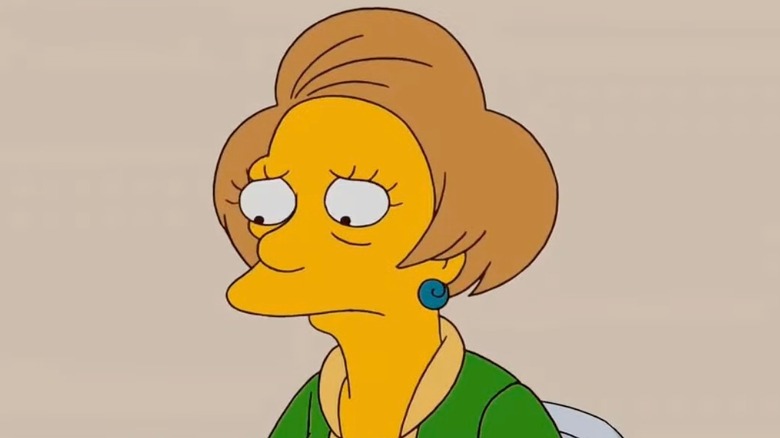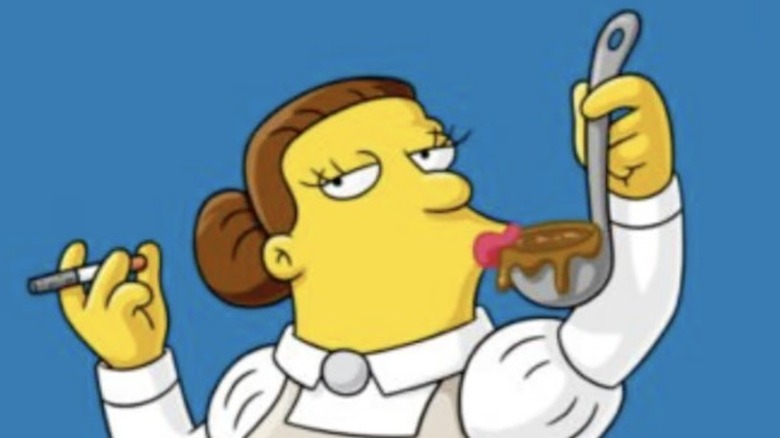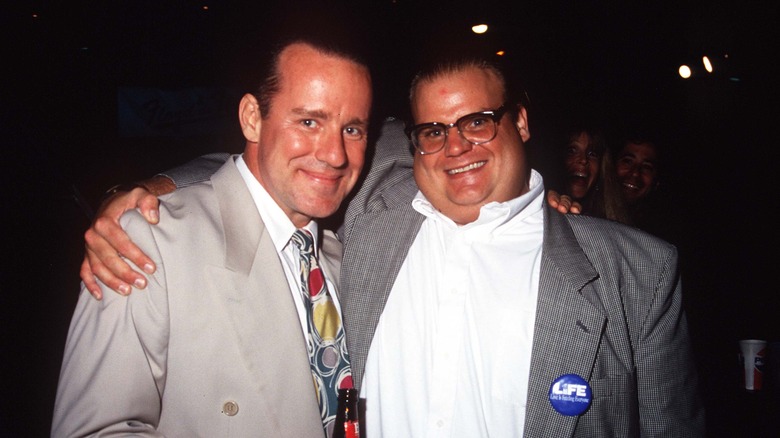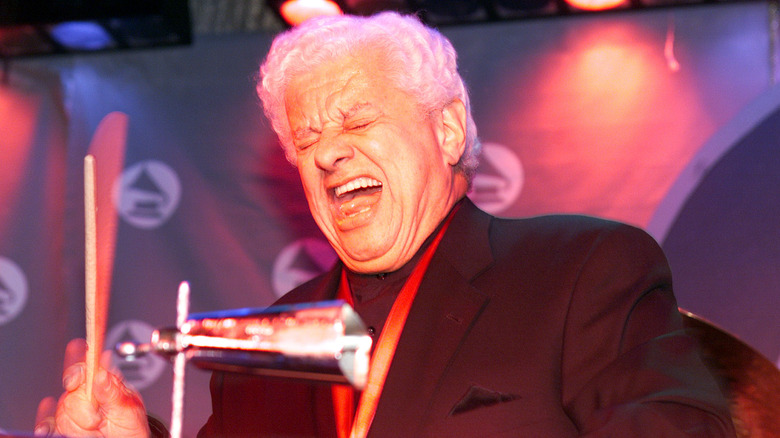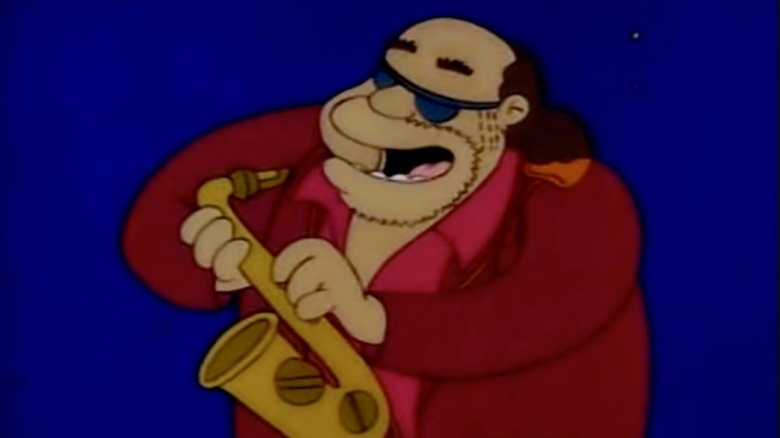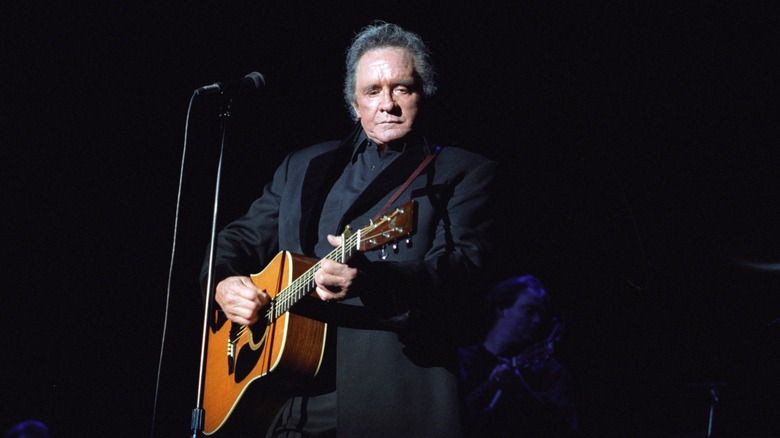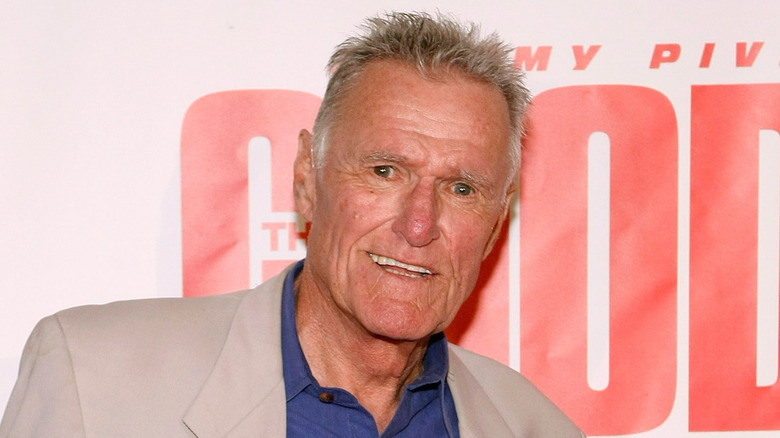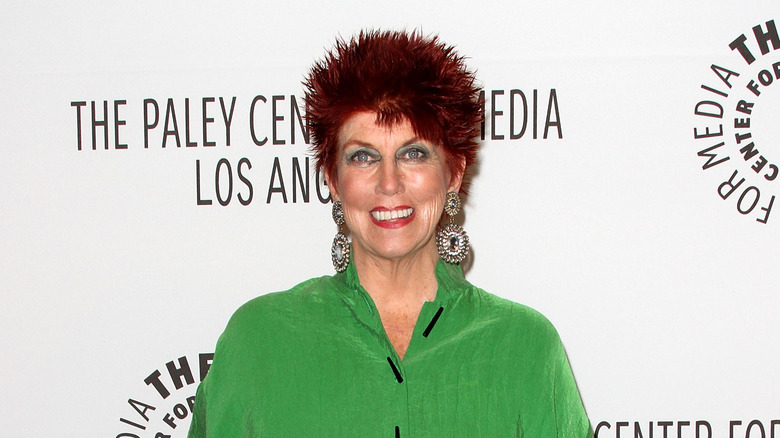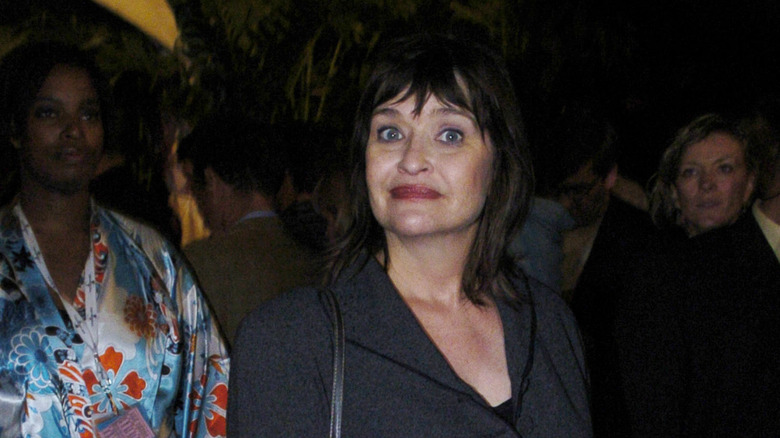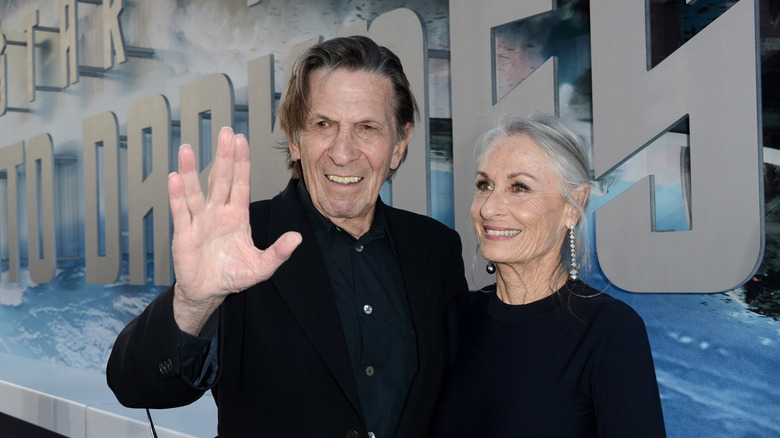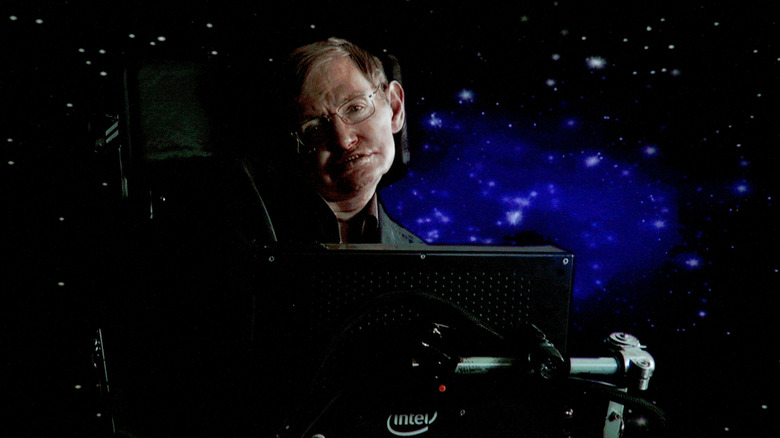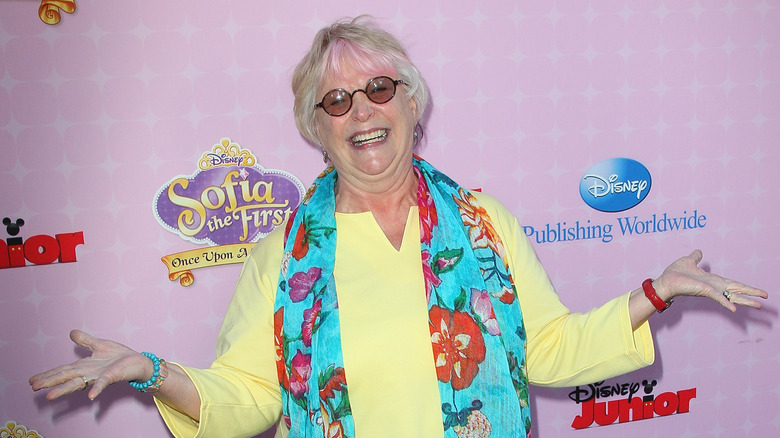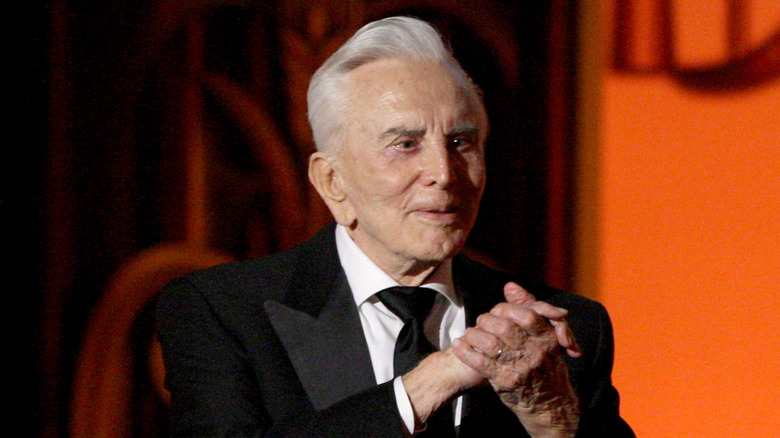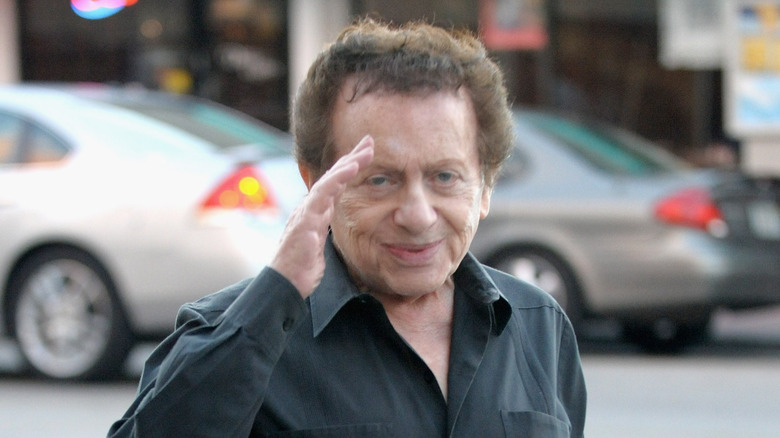The Simpsons Actors You Forgot Passed Away
With well over 30 seasons and counting, "The Simpsons" is the longest-running scripted prime-time series, the longest-running sitcom, and the longest-running animated series on American television. It is legendary and has made an indelible impression on television while skewering pop culture with its sarcastic, observant, and merciless humor. During its run, "The Simpsons" has won 35 Emmy awards and is arguably one of the best television series ever.
The series has courted controversy over the years, but it also has helped make animation for adults mainstream. At this point, "The Simpsons" is widely considered an American institution, a perception that seems tame compared to reactions the public had to the series when it first hit screens in the '80s. "The Simpsons" has maintained its popularity, edge, and credibility, because no one is safe from ridicule, including their network, Fox, and the show itself. The series certainly asks everyone involved to have a sense of humor.
Although some critics and fans have complained the series has been going downhill for a couple of decades, one thing is clear — "The Simpsons" has had more than its fair share of talented actors and celebrities lend their voices to the long-running animated series. Join us as we take a stroll down memory lane and pay tribute to "The Simpsons" actors you forgot passed away.
Doris Grau
Doris Grau became known for her two-packs a day, gargle-with-whiskey gravelly voice, which she utilized in her role as the memorable Lunchlady Doris on "The Simpsons." Between Season 2 through Season 9, Grau voiced Lunchlady Doris and several other small parts in 22 episodes of the series. She also worked on the series as a script advisor before becoming a voice actor.
"The Simpsons" scriptwriter Michael Price told The A.V. Club that after Grau died in 1995, Lunchlady Doris was retired from a speaking role, becoming a voiceless background character out of respect to Grau's memory. Beyond that, the episode "Team Homer" was dedicated to Grau after her death. In the Season 18 episode "You Don't Have to Live Like a Referee," Lunchlady Dora emerged as a new speaking character voiced by Tress MacNeille.
As reported by the Los Angeles Times, Grau was born in Brooklyn but moved to Los Angeles with her family as a teenager and later became a script supervisor for Columbia Pictures. In addition to her classic voice role as Lunchlady Doris, Grau also had recurring roles on "Cheers" and "The Tracey Ullman Show," as well as voicing Doris the makeup lady on "The Critic." Grau died on December 30, 1995, in Los Angeles from respiratory failure.
Phil Hartman
Phil Hartman was best known for his role on "NewsRadio" and as a cast member on "Saturday Night Live," where he performed memorable Bill Clinton impersonations during the '90s. Hartman made a name for himself as a voice actor, playing multiple characters, including Troy McClure, Lionel Hutz, and Lyle Lanley on "The Simpsons." Hartman appeared in over 50 episodes between Season 2 through Season 10, and two of Hartman's characters made IGN's top 25 peripheral characters list.
As reported by The New York Times, Hartman's career and life were cut short in 1998 when his wife, Brynn, shot and killed Hartman on the morning of May 28 at their home before taking her own life. Their young children were home when the tragedy occurred. Friends of the couple said Brynn had a history of addiction, but no one understood what could have happened that morning.
The Los Angeles Times reports that Hartman was born in Canada but moved to Los Angeles with his family in 1960. He took an interest in drama as a young man but studied graphic design in college. It was his love of stand-up comedy that brought him to acting and he co-wrote "Pee-wee's Big Adventure" with his friend Paul Reubens. According to Collider, following his tragic murder, Hartman's characters on "The Simpsons" were retired out of respect for the comedian. "Bart the Mother" was dedicated to Hartman.
Tito Puente
Latin jazz legend Tito Puente appeared as himself in "Who Shot Mr. Burns? Part One" and "Who Shot Mr. Burns? Part Two," leaving an indelible impression on fans of "The Simpsons" with his Emmy-nominated song "Señor Burns." Although Tito was a suspect in this two-episode story arc, Tito didn't shoot Mr. Burns. Instead, he writes and performs a revenge song about how much everyone hates Mr. Burns in Springfield. Puente sings, "It may not surprise you, but all of us despise you, please die, and fry in hell, you rotten, rich old wretch. Adios Viejo!" Puente made IGN's top 25 guest appearances list for his performance on "The Simpsons," and he made Paste's 100 greatest guest stars list.
The New York Times called Puente "The most important Latin musician of the last half century and a key figure in the fusion of Latin music with jazz." Puente was known for his high energy, big smile, and enthusiasm for performing with his Latin-jazz orchestra. In 1923, Puente was born to Puerto Rican immigrants and grew up in Spanish Harlem. Puente served in World War 2 and studied at Juilliard afterward thanks to the G.I. Bill. He started his own orchestra in 1948 and dedicated his life to sharing his love of music. Puente starred as himself in "The Mambo Kings," which helped bring Latin jazz to audiences across the country. Puente died of complications from open heart surgery at New York University Medical Center.
Ron Taylor
Ron Taylor voiced Bleeding Gums Murphy in the Season 1 episode "Moaning Lisa," where the jazz saxophonist becomes Lisa Simpson's mentor, teaching her how to express her emotions through music. Taylor voiced the character again in "'Round Springfield," where Murphy passes away in the hospital when Bart is also a patient. "Sweets and Sour Marge" was dedicated to Taylor after his death, and the character was temporarily retired before being recast with Kevin Michael Richardson voicing the role. Bleeding Gums Murphy made number 32 on Paste's The 100 greatest guest stars list.
As reported by The New York Times, Taylor was born in Texas and took an interest in theater, moving to New York City to study at the American Academy of Dramatic Arts when he was 19. Taylor found his place in musical theater and began working as a singer after graduation. In 1977 Taylor played the Cowardly Lion in "The Wiz." Taylor might be best known for voicing Audrey II, the carnivorous plant in the Broadway play "Little Shop of Horrors."
In the '90s Taylor co-wrote, produced, and performed in the Tony-nominated musical, "It Ain't Nothin' but the Blues." Taylor died of heart failure at 49 in 2002. Before his death, Taylor told The New York Times, "No matter where you're from, no matter your culture, you can get the blues." This pretty much sums up what Bleeding Gums Murphy taught Lisa in "The Simpsons."
Johnny Cash
Johnny Cash, the legendary country singer known for his baritone, black clothing, and eternal love for his wife, lent his voice to "The Simpsons" as the Space Coyote in "El Viaje Misterioso de Nuestro Jomer," during which Homer hallucinates after eating multiple chili peppers of insanity at the local chili cook-off. After Marge leaves without Homer because he embarrassed her with his drunken behavior, Homer goes on a spiritual voyage in search of his soulmate, led by his Space Coyote spirit guide.
It is one of the trippiest episodes of the animated series and made Time's list of the 10 most memorable episodes of "The Simpsons." Cash's performance was widely praised, landing him on Collider's 10 best celebrity guest stars list, number 14 on IGN's top 25 guest appearances, and number 21 on Paste's top 100 guest stars list.
As reported by The New York Times, Cash was born in Arkansas and recorded his early albums at historic Sun Records in Memphis. Cash was a country music staple, finding popularity with every new generation, and a rock pioneer. Cash won 13 Grammys during his music career, and was inducted into the County Music Hall of Fame in 1980 and the Rock and Roll Hall of Fame in 1992. He followed his wife, June Carter Cash, to the grave four months after her death. Cash died in Nashville of complications from diabetes at 71.
Charles Napier
Charles Napier is probably best known for his tough-guy roles in television and movies, although his most memorable part was Tucker McElroy in "The Blues Brothers." Napier also did a lot of voice work during his acting career that spanned five decades. Napier voiced three characters in four episodes of "The Simpsons," playing the recurring role of the Warden.
According to The Hollywood Reporter, Napier was born in Kentucky to a tobacco farmer and a housewife and joined the army after graduating high school. After his time in the Army, Napier got a bachelor's degree in art from Western Kentucky University. Napier moved to Los Angeles in the 1960s and worked as a substitute teacher before gaining an agent through his friend Jack Nicholson.
He began his acting career in television, but his role in "The Blues Brothers" was a turning point in his career, and people started recognizing him on the street. Napier was found unresponsive in his Bakersfield home on October 5, 2011, and was taken to the hospital to be placed on life support. He died later that day at 75.
Marcia Wallace
Marcia Wallace voiced the recurring character Edna Krabappel, Bart's sarcastic and eternally frustrated teacher on "The Simpsons" for over 170 episodes. Wallace began her acting career on television in the 1960s and continued working consistently for over 50 years. She had a recurring role on "The Bob Newhart Show" as the secretary Carol Kester and reprised the role on "Murphy Brown" as a guest spot that earned her an Emmy nomination.
Of course, Wallace won an Emmy for her performance as Edna Krabappel in 1992 and landed on IGN's top 25 peripheral characters list at number 16. "Four Regrettings and a Funeral" was dedicated to Wallace after her death. After her death, "The Simpsons" showrunner Al Jean told Entertainment Weekly, "I was tremendously saddened to learn this morning of the passing of the brilliant and gracious Marcia Wallace," sharing how loved she was by the cast and crew of the animated series. Jean added, "we intend to retire her irreplaceable character."
As reported by the Los Angeles Times, Wallace grew up in Iowa, and had a troubled childhood she would later write about in her memoir "Don't Look Back, We're Not Going That Way!" and was a breast cancer survivor. Wallace died at 70 of pneumonia. Wallace's son, Michael Hawley, told the Los Angeles Times, "The greatest gift she gave me was that you have to love the world, and see it through lenses of humor."
Jan Hooks
Jan Hooks was probably best known for her stint on "Saturday Night Live," joining at the same time as her fellow "The Simpsons" alum Phil Hartman, where she showcased her memorable impersonations of Tammy Faye Bakker, Ivana Trump, and Hillary Rodham Clinton. Hooks joined the cast of "Designing Women," bringing her native Georgia accent to the Atlanta set series, and received an Emmy nomination for her guest role on "3rd Rock from the Sun" playing Vicki.
In addition to her television work, Hooks was in various films in the '80s and '90s, including "Pee-Wee's Big Adventure" and "Coneheads." Hooks brought her impeccable comedic timing and talent for inhabiting bizarre personalities to the animated series when she voiced Manjula Nahasapeemapetilon, Apu's wife, in six episodes of "The Simpsons" starting in Season 9. "Super Franchise Me" was dedicated to Hooks after her death.
Hooks grew up in Georgia, entertaining her family with skits. After she joined Atlanta's sketch group, New Wit's End Players, she built a reputation for making people laugh while making movies and television series before landing a spot on "Saturday Night Live." Critic Ann Hornaday, who was friends with Hooks, told Grantland that Hooks was ambivalent about fame. In the late '90s, she bought a farmhouse in upstate New York and rarely worked. Hooks was treated for cancer in 2009 and went into remission, but she found a lump on her throat shortly before she died, opting for palliative care. Hooks was 57 when she died.
Leonard Nimoy
Although Leonard Nimoy was best known for playing Spock in the "Star Trek" franchise, he also did a lot of voice work for animated series and games during his career spanning five decades. Nimoy appeared as himself twice on "The Simpsons." His appearance in the Season 4 episode, "Marge vs. the Monorail" landed him at number five on Paste's 100 greatest guest stars on "The Simpsons" list. Nimoy also made IGN's top 25 guest appearances for his narration of "The Springfield Files," when Mulder and Scully from "The X-Files" pay a visit to Springfield in Season 8. "The Princess Guide" was dedicated to Nimoy after his death.
As reported by The New York Times, Nimoy was born in Boston to Ukrainian immigrants. He took part in community theater from a young age and moved to Hollywood in 1949 to pursue acting. Nimoy landed small parts on television and in films throughout the '50s and '60s and did a stint in the Army before his big break came.
Although Nimoy will always be the sci-fi icon Spock to "Star Trek" fans who enjoyed his performances in the original television series, the film series that followed, and the film reboot as an older version of Zachary Quinto's Spock, Nimoy had other artistic interests. Nimoy was a published memoirist, poet, and photographer, as well as an accomplished director and producer. Nimoy died at 83 from chronic obstructive pulmonary disease.
Stephen Hawking
Stephen Hawking was best known for being a theoretical physicist and author who changed the way people looked at the universe. "The Simpsons" fans know he voiced himself in four episodes. He has a large role in the episode "They Saved Lisa's Brain," when Lisa is invited to join Springfield's MENSA chapter. Hawking made IGN's top 25 guest appearances on "The Simpsons" list, landing at number 16, and he secured number 27 on Paste's best guest stars list.
According to Hawking, he guest starred in the animated series because his daughter, Lucy, knew one scriptwriter on the series, and they wanted to write an episode featuring him. Hawking said, "I accepted immediately, because it would be fun, and because 'The Simpsons' is the best thing on American television." After his death, Matt Selman, who wrote Hawking's parts for "The Simpsons," told the BBC, "When he was in LA he would just come to table reads and enjoy them as a fan."
"The Simpsons" showrunner Al Jean told The Hollywood Reporter, "He popularized science for people who may not have been interested in it. And that is something we have tried to do on 'The Simpsons': Put science and math inside the show," adding, "He was certainly a hero to all of us." Hawkins will be remembered for showing the world. As he told The New York Times, "people need not be limited by physical handicaps as long as they are not disabled in spirit."
Russi Taylor
Russi Taylor is best known for lending her voice to Minnie Mouse. She also voiced other Disney characters, such as Huey, Dewey, and Louie in "DuckTales." Taylor lent her voice to Martin Prince, Sherri, Terri, Üter Zörker, and other characters in "The Simpsons" in nearly 200 episodes. After her passing, showrunner Al Jean paid tribute to Taylor on Twitter, saying, "Deeply saddened to learn of the passing of Russi Taylor a true delight to work with."
Rick Dempsey at Disney said, "She truly was one of the kindest, most gracious, upbeat, and loving people I have ever had the privilege to work with and to count as a friend." Taylor's body of work was impressive, but as a voice actor, she could walk down the street without being recognized, and that's how she liked it. She once said, "I never wanted to be famous. The characters I do are famous, and that's fine for me."
As reported by The New York Times, Taylor met Walt Disney at Disneyland as a child and told him she wanted to work for him someday. In 1986, she auditioned to be Minnie Mouse and won the role. Taylor met Wayne Allwine, who voiced Mickey Mouse while recording "Totally Minnie" in 1988, and they were married in 1991 until his death in 2009. Taylor died at 75 from cancer at her Glendale home.
Kirk Douglas
Acting legend Kirk Douglas lent his voice to "The Simpsons" when he played Chester Lampwick in the Season 7 episode "The Day the Violence Died." This episode explored Lampwick's claims that he created Itchy and Scratchy and should make money off the rights of the characters Lisa and Bart enjoy watching. Douglas landed number 92 on Paste's top 100 best guest stars on "The Simpsons" list for his performance in the episode.
As The New York Times reported, Douglas was born Issur Danielovitch to immigrants in Amsterdam, New York, and grew up the only son with six sisters. The family changed their names to assimilate and Douglas became Isadore Demsky. Douglas grew up in poverty because of antisemitism and his father's struggles with alcoholism, and wrote about his childhood in his best-selling memoir, "The Ragman's Son."
The actor went to college and changed his name to Kirk Douglas after graduation. After college, he studied acting in New York before enlisting in World War 2. After the war, Douglas began his film career and became a movie star in the '40s during the Golden Age of Hollywood. Douglas was probably best known for his role in "Spartacus" and for playing Vincent van Gogh in "Lust for Life." Douglas was an Oscar nominee, Presidential Medal of Freedom recipient, film producer, novelist, and philanthropist. Douglas died in his Beverly Hills home at 103.
Jackie Mason
Jackie Mason was a stand-up comedian known for his observational humor, thick accent, and his roles in "The Jerk" and "Caddyshack 2." Mason voiced Hyman Krustofsky, a rabbi who doesn't approve of his son, Krusty the Clown, in 12 episodes of "The Simpsons." Mason won an Emmy for his performance as Hyman Krustofsky.
According to The New York Times, Mason was born Yacov Moshe Maza to Jewish immigrants living in Wisconsin but moved with his family to Manhattan's Lower East Side when he was five. He came from a long line of rabbis, and like his brothers, went into the family profession and became a rabbi himself. He didn't enjoy being a rabbi but felt pressured to follow in his father's footsteps. To save himself from misery, he spent summers writing and performing comedy in the Catskills.
When his father died, Mason changed his name and left his position as a rabbi to pursue a career as a comic. Appearances on "The Steve Allen Show" launched his career, but it didn't take long for Mason to get a reputation for being crass, unpredictable, and politically incorrect. His career suffered, but his one-man show "The World According to Me!" cemented his career as a stand-up comedy legend. The rest, as they say, is history.
